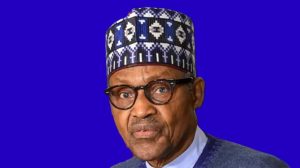Nigeria’s former President, Muhammadu Buhari, is dead. He passed away at the age of 82 in a clinic in London, United Kingdom, where he had been receiving medical care since April 2025.
The announcement of his death was made in a brief statement issued on Sunday by his former spokesman, Garba Shehu, on behalf of the family.
The statement read: “The family of the former president has announced the passing on of the former president, Muhammadu Buhari, GCFR, this afternoon in a clinic in London. May Allah accept him in Aljannatul Firdaus, Amin.”
Buhari served as Nigeria’s civilian president from 2015 to 2023, and before that, as a military Head of State between 1983 and 1985. He had been battling undisclosed health issues, and though his April 2025 trip to London was initially described as a routine medical check-up, he reportedly became critically ill soon after arrival and remained hospitalised until his death.
His passing officially marks the end of one of Nigeria’s most influential political lives. Born on December 17, 1942, in Daura, Katsina State, Buhari was a retired Major General in the Nigerian Army and a key figure in both Nigeria’s military and democratic eras.
He first came to national prominence after the military coup of December 31, 1983, which saw the ousting of the civilian government led by President Shehu Shagari. As Head of State, Buhari launched the “War Against Indiscipline,” a campaign focused on restoring order and fighting corruption. Though the intentions were praised by many, the methods were considered high-handed and authoritarian. His military rule was cut short when he was overthrown by General Ibrahim Babangida in August 1985.
Despite his ouster, Buhari remained in public consciousness, rebranding himself as a democratic politician in the Fourth Republic. He contested the presidential elections of 2003, 2007, and 2011 unsuccessfully. However, his fourth attempt in 2015 under the All Progressives Congress (APC) saw him defeat then-President Goodluck Jonathan — marking the first time a sitting Nigerian president lost at the ballot box.
He was re-elected in 2019 for a second and final term, continuing his administration’s focus on anti-corruption, infrastructure development, and counter-insurgency operations against Boko Haram and other armed groups in the North-East.
While Buhari’s government achieved several milestones in road, rail, and power infrastructure, it also faced widespread criticism. Nigerians voiced concerns about rising insecurity across the country, particularly in the North-West and Middle Belt, growing public debt, a struggling economy, and crackdowns on protesters and the press.
A major feature of his presidency was his frequent medical trips to the United Kingdom. These trips, which often lasted weeks or months, became a national concern, with critics saying it reflected poorly on Nigeria’s healthcare system and raised transparency questions.
When he completed his second term on May 29, 2023, he handed over power to his successor, President Bola Ahmed Tinubu, and retired to his hometown in Daura, Katsina State. There, Buhari largely stayed away from political activities and the media spotlight, until early 2025 when rumours about his deteriorating health began to circulate.
Despite the controversies surrounding his leadership style and health challenges, Buhari maintained a loyal support base and was respected by many for his simplicity, personal discipline, and commitment to public service.
Reactions have started pouring in from leaders and citizens across the country, with prayers being offered for the repose of his soul. Many have described his death as the close of a defining chapter in Nigeria’s political journey — one that witnessed the transition of a once-authoritarian leader into a democratically elected two-term president.
Buhari is survived by his wife, Aisha Buhari, and children. Funeral arrangements are expected to be announced by the family in due course, but it is likely that he will be buried in accordance with Islamic rites in his hometown of Daura.
